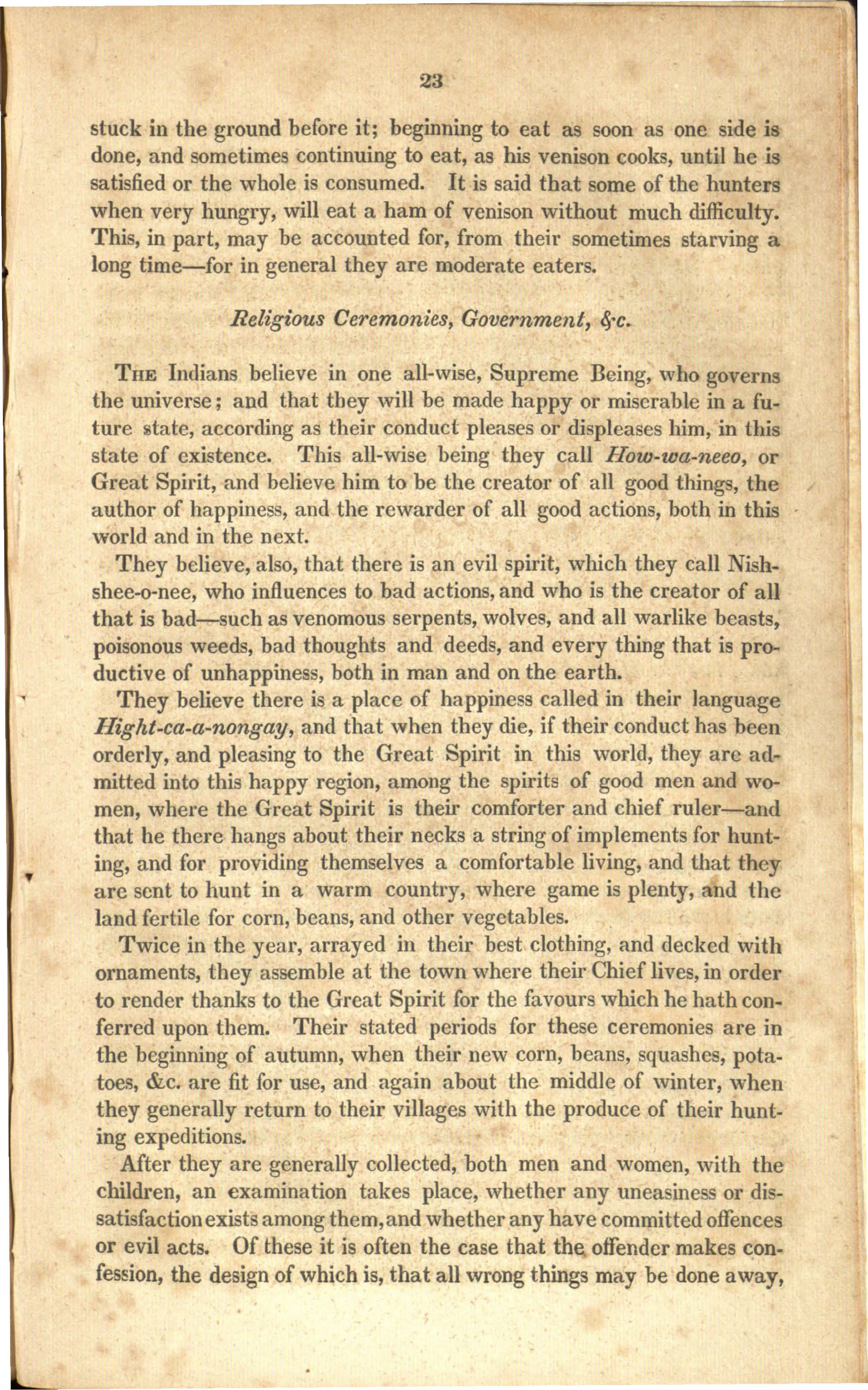stuck in the ground before it; beginning
to eat as soon as one side is
done, and sometimes continuing to eat, as his
venison cooks, until he is
satisfied or the whole is consumed. It is said
that some of the hunters
when very hungry, will eat a ham of venison
without much difficulty.
This, in part, may be accounted for, from their
sometimes starving a
long time - for in general they are moderate
eaters.
Religious Ceremonies, Government, &c.
THE Indians believe in one all-wise, Supreme Being, who governs
the
universe; and that they will be made happy or miserable in a fu-
ture state,
according as their conduct pleases or displeases him, in this
state of
existence. This all-wise being they call How-wa-neeo, or
Great Spirit, and
believe him to be the creator of all good things, the
author of happiness,
and the rewarder of all good actions, both in this
world and in the
next.
They believe, also, that there is an evil spirit, which they call
Nish-
shee-o-nee, who influences to bad actions, and who is the creator of
all
that is bad - such as venomous serpents, wolves, and all warlike
beasts,
poisonous weeds, bad thoughts and deeds, and every thing that is
pro-
ductive of unhappiness, both in man and on the earth.
They believe there is a place of happiness called in their language
Hight-ca-a-nongay, and that, when they die, if their conduct has been
orderly, and pleasing to the Great Spirit in this world, they are ad-
mitted
into this happy region, among the spirits of good men and wo-
men, where the
Great Spirit is their comforter and chief ruler - and
that he there hangs
about their necks a string of implements for hunt-
ing, and for providing
themselves a comfortable living, and that they
are sent to hunt in a warm
country, where game is plenty, and the
land fertile for corn, beans, and
other vegetables.
Twice in the year, arrayed in their best clothing, and decked with
ornaments, they assemble at the town where their Chief lives, in order
to
render thanks to the Great Spirit for the favours which he hath con-
ferred
upon them. Their stated period for these ceremonies are in
the beginning of
autumn, when their new corn, beans, squashes, pota-
toes, &c. are fit
for use, and again about the middle of winter, when
they generally return
to their villages with the produce of their hunt-
ing expeditions.
After they are generally collected, both men and women, with the
children,
an examination takes place, whether any uneasiness or dis-
satisfaction
exist among them, and whether any have committed offences
or evil acts. Of
these it is often the case that the offender makes con-
fession, the design
of which is, that all wrong things may be done away,

